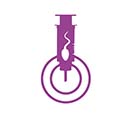INTRACYTOPLASMIC SPERM INJECTION
ICSI is a technique used to inject each egg in its centre with a selected sperm using a machine called micromanipulator. It is utilized for couples with severe male factor infertility where little or no sperm is ejaculated in the semen.
What you need to know?
-
- Advent of ICSI (Intracytoplasmic Sperm Injection) in 1991 revolutionised the treatment of male infertility.

- Using a micromanipulator machine each mature egg is injected with one sperm after selection.
- Thereby this technique results in higher fertilization rates.
Where is it used?
- Males with abnormal sperm parameters (count, motility and morphology)
- Cases of zero sperms (Azoospermia) where the sperms are retrieved from testis/Epididymis
- Recurrent fertilization failure after conventional IVF.
- Couples with genetic disorders
Difference between IVF and ICSI
In IVF, sperms (after washing in the lab) are left in tube/petri dish around the egg, to fertilize whereas in ICSI each egg is injected with one sperm which is selected using a machine called micro manipulator.
IVF and ICSI both are different techniques used for fertilization (meeting of egg and sperm) but from patient’s perspective there is no difference.
What do we expect from you?
- To strike a balance, to bring in harmony between body mind and soul in anticipation of pregnancy.
- A balanced diet and adequate water intake and keeping fit with moderate exercise regimen is of prime importance.
- Junk and processed food to be completely avoided.
- Food which contains antioxidants is advised which will help improving sperm quality.
- Watch your weight and BMI
- Avoid keeping mobile phones in the pockets of the pants and laptop on the laps as the radiation from these gadgets can affect the sperm quality.
- Micro nutrients to be added in the diet to boost fertility.
- Excessive gym and use of steroids or supplements for muscle mass to be avoided.
No. of visits and Hospital stay
- 4-5 visits to the clinic.
- For TESA and PESA is done on the same day of egg pickup of the wife and discharged on the same day after 4-6 hours.TESA and PESA is done under local anaesthesia therefore no admission is required.
Frequently asked questions
Q1. What is ICSI?
Ans:- ICSI is a procedure that requires a machine called a micromanipulator to inject a selected sperm into each egg’s centre. It is used to help couples with severe male factor infertility who have little or no sperm in their semen.
Q2. How successful is ICSI?
Ans:- ICSI normally fertilises 50-80% of the eggs that are fertilised. It’s important to keep in mind, though, that no procedure can guarantee a 100 percent success rate.
Q3. What is the difference between IVF and ICSI from patient’s perspective?
Ans:- IVF and ICSI are two separate techniques for fertilisation (meeting of egg and sperm), however there is no difference from the patient’s perspective.

